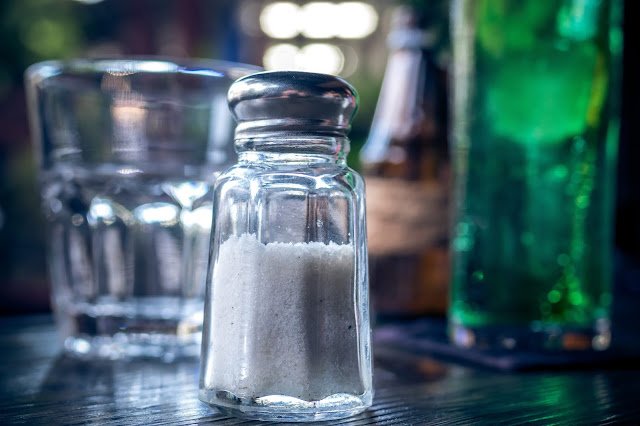The Hidden Dangers Of Salt On Your Health
 |
| The Hidden Dangers Of Salt On Your Health |
Salt is essential to the body because it is involved in bone strengthening, growth and in some brain function. However, Excessive use can lead to many health problems, the amount you ingest must not exceed 5g per day, It is therefore advise to limit the daily dose of salt especially in the summer period.
The dangers of salt
Sodium, contained in salt, can have multiple adverse effects on health:
• Excessive consumption leads to water retention problems, which in turn cause the tissues to dry out and can accelerate the aging of the skin, just like the sun or the cigarette.
• It attacks the internal tissues and causes them to lose their natural elasticity and thus increases the risk of developing edema. In the long term, salt engulfs the arteries and can lead to high blood pressure.
•A diet high in sodium increases the risk of late puberty for teens and increases fertility disorders, according to a study from the University of Wyoming (USA).
•Eating less salt is really good for your health and saves lives. In fact, reducing the daily dose of salt in the diet reduces the risk of dying from a heart attack, according to a study published in the medical journal BMJ Open.
•High levels of sodium thicken the heart muscle, forcing it to work harder. It also harms the ability of the kidneys to filter proteins, and this negatively affects the part of the brain that controls the response of our nervous system, according to a study from the University of Delaware (USA).
How to reduce your consumption
It is not easy to reduce salt consumption since almost 80% of our consumption comes from processed products. Here are some tips to apply daily:
• Avoid buying prepared foods as much as possible, turn to foods that have been processed as little as possible;
• To enhance the taste of your dishes, instead of salt, use spices or herbs;
• Favor some cooking methods that preserve the flavor of food: steam, foil, smothered;
• Favor some vegetables (cabbage, celery), fish (salmon, mackerel), meat (lamb, beef) that have a strong taste and therefore do not need to be salted;
• Make homemade sauces and condiments;
• Increase your consumption of citrus fruits, vitamin C being a natural antidote to the harmful effects of salt. It plays a role in preventing heart disease and hypertension, conditions aggravated by overconsumption of salt.
Industrialists are full of imagination to put forward mentions such as "reduced in ..." (chloride, sodium, salt ...). Know that the sodium content is different from the salt content indicated on food labels. Salt is the common name for sodium chloride, so it contains sodium (about 400mg per 1g of salt) and chloride (600mg per 1g of salt). Keep your eyes open!
Salt is a real public health problem, it is necessary for the body but in small doses. Now that you are informed and advised, reducing your salt intake is going to be a breeze!





No comments:
Post a Comment